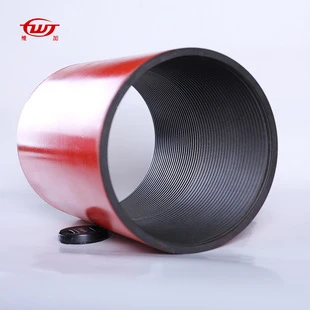- Afrikaans
- Albanian
- Amharic
- Arabic
- Armenian
- Azerbaijani
- Basque
- Belarusian
- Bengali
- Bosnian
- Bulgarian
- Catalan
- Cebuano
- Corsican
- Croatian
- Czech
- Danish
- Dutch
- English
- Esperanto
- Estonian
- Finnish
- French
- Frisian
- Galician
- Georgian
- German
- Greek
- Gujarati
- Haitian Creole
- hausa
- hawaiian
- Hebrew
- Hindi
- Miao
- Hungarian
- Icelandic
- igbo
- Indonesian
- irish
- Italian
- Japanese
- Javanese
- Kannada
- kazakh
- Khmer
- Rwandese
- Korean
- Kurdish
- Kyrgyz
- Lao
- Latin
- Latvian
- Lithuanian
- Luxembourgish
- Macedonian
- Malgashi
- Malay
- Malayalam
- Maltese
- Maori
- Marathi
- Mongolian
- Myanmar
- Nepali
- Norwegian
- Norwegian
- Occitan
- Pashto
- Persian
- Polish
- Portuguese
- Punjabi
- Romanian
- Russian
- Samoan
- Scottish Gaelic
- Serbian
- Sesotho
- Shona
- Sindhi
- Sinhala
- Slovak
- Slovenian
- Somali
- Spanish
- Sundanese
- Swahili
- Swedish
- Tagalog
- Tajik
- Tamil
- Tatar
- Telugu
- Thai
- Turkish
- Turkmen
- Ukrainian
- Urdu
- Uighur
- Uzbek
- Vietnamese
- Welsh
- Bantu
- Yiddish
- Yoruba
- Zulu
Understanding the Importance of Casing Collars in Oil and Gas Operations
Understanding Casing Collars in Oil and Gas Operations
In the oil and gas industry, casing collars play a crucial role in ensuring the structural integrity of wells and facilitating efficient drilling processes. These specialized components are integral to well construction, providing both physical support and functional characteristics essential for various drilling operations.
What is Casing?
Before delving into casing collars, it is vital to understand the concept of casing itself. Casing refers to the series of metal tubes, typically made of steel, that are installed in the boreholes of oil and gas wells. Their primary purpose is to provide stability to the well structure, prevent collapse, and protect the surrounding environment from contamination. The casing also serves to isolate different pressure zones within the well, ensuring safe operation and effective resource extraction.
Casing Collars Explained
Casing collars are specifically designed fittings that are used in conjunction with the casing pipes. They are typically located at intervals along the casing and can be made from various materials, including carbon steel and high-strength alloys. Their main function is to connect sections of casing, ensuring a robust and leak-resistant assembly. Collars can also serve as attachment points for various downhole equipment, such as perforating guns, which are crucial for well completion and production.
Casing collars come in different designs, including slip-on collars, threaded collars, and welded collars. Each type has its distinct advantages and applications depending on the specific requirements of the drilling operation.
Importance of Casing Collars
casing collar

1. Structural Integrity Casing collars enhance the overall structural integrity of the well. By providing secure connections between casing sections, they ensure that the well can withstand various forces exerted during drilling and production operations. This is particularly important in deep-water drilling where pressures and temperatures can reach extremes.
2. Isolation Collars aid in isolating different formations within the wellbore. By strategically placing collars, operators can control fluid movement between different strata, reducing the risk of cross-contamination between oil, gas, and groundwater resources.
3. Facilitating Operations Casing collars often provide critical anchor points for various downhole equipment and tools. This is particularly vital during the completion stage of a well when equipment needs to be deployed at specific depths. The ability to attach devices securely to casing collars simplifies these processes and enhances operational efficiency.
4. Enhanced Safety By ensuring that the wellbore remains stable and controlled, casing collars play a significant role in the safety of drilling operations. They help manage pressures within the well and prevent potential blowouts or leaks that could have catastrophic consequences for both personnel and the environment.
5. Cost-Efficiency Investing in high-quality casing collars can ultimately lead to significant cost savings for oil and gas companies. By reducing the likelihood of well failures and ensuring a smoother drilling process, operators can minimize downtime and maximize productivity.
Conclusion
Casing collars may seem like small components in the grand scheme of oil and gas operations, but their importance cannot be overstated. By providing structural support, facilitating essential operations, enhancing safety, and promoting cost-efficiency, these fittings are vital for the successful extraction of natural resources.
As the industry continues to advance with new technologies and practices, the role of casing collars will evolve. Innovations in materials and design will likely lead to even more robust solutions that can withstand the challenges posed by deeper wells and harsher environments. Thus, understanding the function and significance of casing collars is essential for professionals in the oil and gas sector, ensuring that they can both operate effectively and contribute to a sustainable approach in resource extraction. In the end, the reliability and efficiency of every well depend significantly on these indispensable components.
-
Well Casing Extension Couplings – Applications and InstallationNewsJun.06,2025
-
Types of Crossover Subs in Drilling & CompletionNewsJun.06,2025
-
Key Features of High-Quality Tubing Pup JointsNewsJun.06,2025
-
Installation and Maintenance Tips for Steel Couplings for PipeNewsJun.06,2025
-
How to Select the Right Pup Joint for Oil & Gas OperationsNewsJun.06,2025
-
Applications of Stainless Steel Pipe CouplingsNewsJun.06,2025







